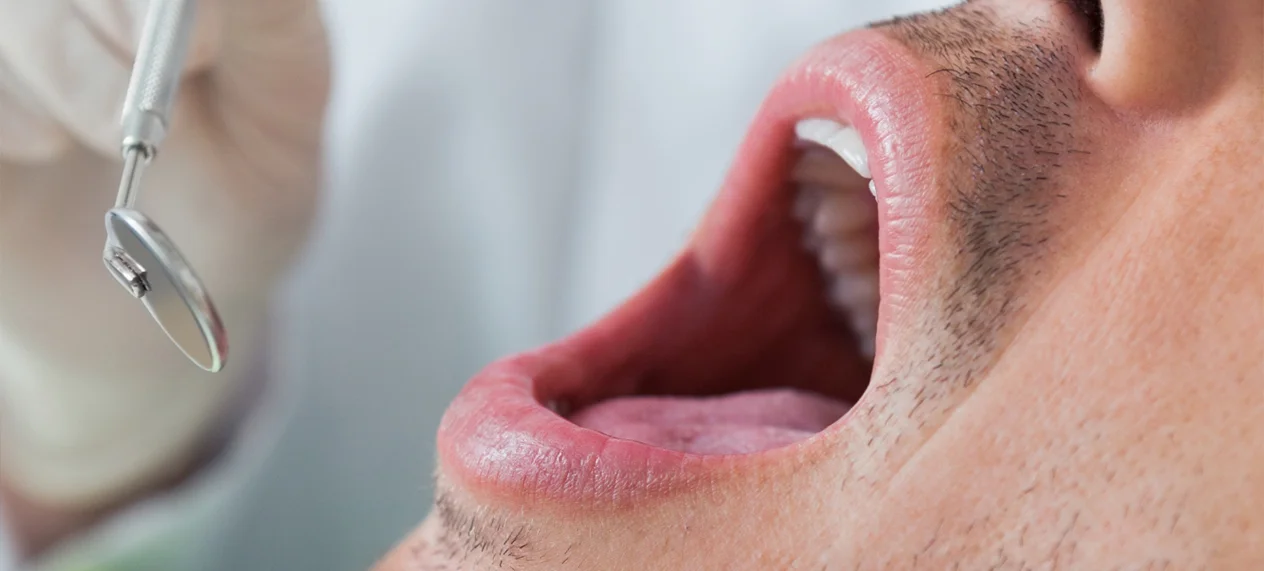
Mouth or oral cavity cancer is a severe but neglected type of cancer. It may develop in various areas of the mouth such as the lips, tongue, cheeks, gums, and roof or floor of the mouth. The initial stages may not have any apparent warning signs, but detection of the symptoms in the early stages can go a long way in enhancing the likelihood of successful treatment.
Here, we will guide you through the symptoms of mouth cancer, reasons for mouth cancer, diagnosis, treatment options, prevention methods, survival rate, and more.
Oral cavity cancer is a head and neck cancer that starts in the mouth's tissues. Most oral cancers begin in the squamous cells, which are the lining cells of the lips and inside of the mouth. Such cancers are also known as squamous cell carcinomas.
Oral cavity cancer may occur in:
Since the mouth is so sensitive and active, any kind of cancer occurring here can have a significant impact on daily activities such as speaking, eating, and swallowing.
Read Also: Prostate Cancer Is Among The Few Common Cancers That Occur In Men
Since one of the main issues with oral cavity cancer is that early symptoms of mouth cancer are usually dismissed as nothing because they do not feel serious, any symptoms that continue for over two weeks need to be evaluated by a medical professional.
Common signs and symptoms are:
The sooner these symptoms are detected, the greater the likelihood of finding the cancer at an early stage when it can be treated.
Read Also: Brain Tumor: An Overview
A number of factors put someone at risk of oral cancer. Although anyone can get it, there are habits and conditions closely associated with this disease.
The primary causes of oral cancer include:
Read Also: Things to know about Leukemia: Causes, Diagnosis, and Treatment
Knowing the oral cancer risk factors can help you take precautions for yourself or urge someone you care about to get checked.
You are more likely to be at risk if you:
Knowing about these risk factors aids in having healthy lifestyle options and taking preventive measures at an early stage.
Read Also: What You Need to Know Before Stomach Cancer Treatment
When there are symptoms or the dentist is aware of something out of the ordinary, an oral cancer diagnosis is initiated by a clinical exam. The physician or dentist will inspect for irregular tissue in the mouth.
Diagnostic approaches are:
Oral cavity cancer is also divided into stages, by which doctors can determine how far the disease has progressed and how it should be treated.
The survival rates for oral cancer are highly correlated with these stages. Detection in early stages greatly enhances outcomes.
Treatment of oral cancer is different depending upon the stage, site of the cancer, and the patient's overall health. The treatment plan for most is created by a team of experts comprising surgeons, oncologists, and radiation specialists.
Some of the commonly used treatment techniques are:
Side effects differ based on treatment type, but most are manageable with good care and support.
Survival rates for oral cancer depend on stage and site. Based on global statistics:
Yes. While not every case is preventable, many can be avoided by changing risk-related behaviors and making health-conscious choices.
Key oral cancer prevention tips:
Little changes today can keep serious health problems at bay tomorrow.
Awareness of oral cancer is important since early signs tend to be overlooked or ignored. Education among the population can result in:
Raising awareness in schools, workplaces, and health camps at a community level can significantly improve early diagnosis and treatment.
If you notice any symptoms that last more than 2 weeks — such as mouth sores, difficulty swallowing, or unexplained bleeding — see a dentist or healthcare professional immediately. Never ignore changes in your mouth or throat.
Early diagnosis can lead to less aggressive treatment, fewer complications, and a higher chance of recovery.
Oral cavity cancer is not to be underestimated. Although it can kill, it's also one of the most preventable and curable forms of cancer if detected early. Knowing its signs, risk factors, and solutions can keep you safe from the risks of mouth cancer.
By learning about the symptoms, risk factors, and treatments, you're more empowered to take control of your own health — or for someone else to do so.
Whether you’re making a personal change or spreading the word, every step matters in the fight against oral cancer.